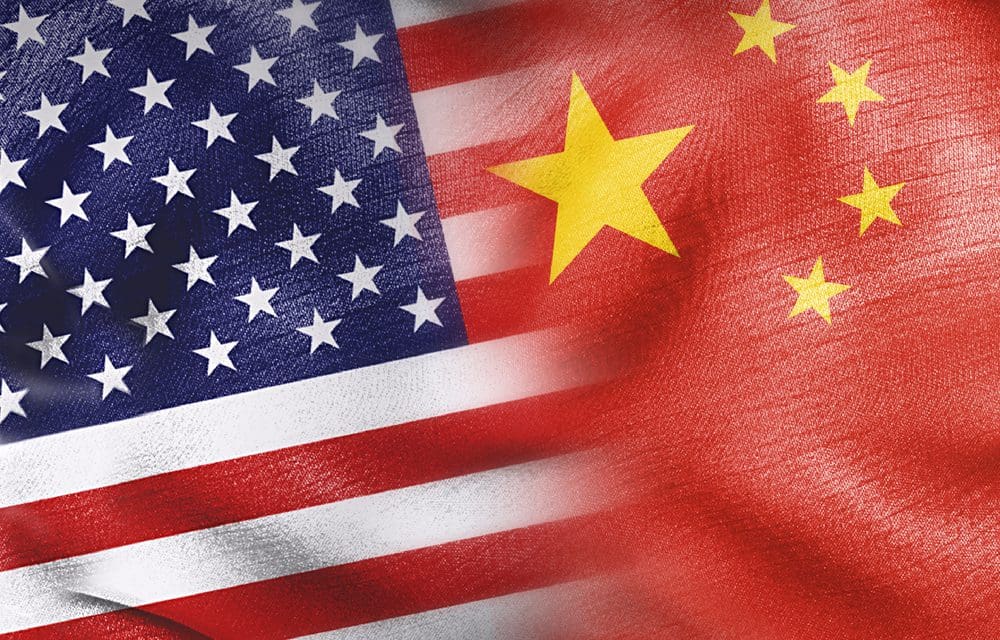Land acquisitions associated with the Chinese Communist Party do not always involve wind mills, agriculture, or even American military installations. Beijing also appears to be hungry for Texas real estate and real estate development projects.
Previously in this investigative series, Texas Scorecard has explored the Chinese Communist Party’s (CCP) infiltration of Texas’ education apparatus, our land, our politics, and this week our commerce.
In education, they did it using the name of an ancient Chinese philosopher as a trojan horse while promising exports of Chinese culture and language. In land, by acquiring acreage in South Texas near a military installation through companies financed with CCP money, and gaining access to our food supply. And in politics by making connections at the state and local levels, with the promise of greater economic access.
In commerce, the Chinese Communist Party accomplished this through connections between major Chinese corporations and American industries, such as energy in Texas. As established in previous articles, the Chinese government views these companies as conduits of CCP influence into American industries, so they support and encourage such investments. Americans would do well to take notice and be on the alert.
However, these corporate ties do not end there. Another significant area of financial investment for the CCP in recent years has been the Texas real estate industry, an area currently seeing skyrocketing prices and suffering from destructively high property taxes. This infiltration is significantly different from previous reporting on land, as it’s not near military installations or in food production but regarding the acquisition and development of real estate in our cities and backyards.
Changing the Skyline
There are major concerns with the CCP or their proxies acquiring land in Texas, one of which is surveillance. As previously reported, the reason a former member of the People’s Liberation Army bought land near Laughlin Air Force base in South Texas was to conduct “over-the-horizon” mapping. Another concern, as seen with the purchase of a major American hog producing company, is corporate espionage, stealing technological advancements from American companies.
And Beijing’s appetite for land is large.
In 2016, Tianqing Real Estate Development, also known as Tianqing RED, purchased a tract of land on Houston’s Allen Parkway for its multimillion-dollar high-rise, mixed-use development project.
The company is a U.S. subsidiary of a Chinese corporation by the name of Gansu Tianqing Real Estate Group Co., the largest real estate company in China’s Gansu province. This corporation has ties to the United Front Work Department of the Central Committee, the Ministry of Housing and Urban-Rural Development, and the Gansu Provincial Party Committee. Additionally, the group has received numerous awards from the United Front Work Department and others.
The United Front Work Department connection is an important, and concerning one. According to the Australian Strategic Policy Institute, it is a coalition of individuals and groups that work to advance the Chinese Communist Party’s agenda in countries around the world. Chinese President Xi Jinping has been heavily involved in the United Front for years. In fact, according to a Google translation of a report on the 2015 United Front conference, President Xi said the following:
The united front is the political advantage and strategic policy of the Chinese Communist Party to unite people’s hearts and strength. An important magic weapon for the success of the reform cause is to strengthen the party’s class foundation, expand the party’s mass base, and consolidate the party’s ruling position, and it is an important magic weapon for building a moderately prosperous society in an all-round way, accelerating socialist modernization, and realizing the Chinese dream of the great rejuvenation of the Chinese nation.
The Houston project consists of the construction of various high-rise buildings, including a luxury hotel, condominiums, office space, and possibly a luxury senior living building. The total investment adds up to approximately $500 million. While Tianqing RED plans to rely on its parent company to provide most of the required funding, part of the funding for the project will come from the EB-5 visa investment program.
As previously reported, the EB-5 program provides foreign investors with a green card as long as they invest a certain amount of money in American businesses and “plan to create or preserve 10 permanent full-time jobs for qualified U.S. workers.” It was widely reported that one of the top states to receive investments through the EB-5 visa program is Texas. According to The Seattle Times, “investors from mainland China dominate the contest for EB-5 visas… [in 2015], 86 percent of approved petitions came from those born there.”
Tianqing RED was welcomed to Houston by Mayor Sylvester Turner, with the assistance of then-Consul General Li Qiangmin. The presence of a local public servant for such a project is not at all surprising. Tall, big-ticketed rental properties cause local officials to see dollar signs. This is because such properties are lucrative sources of property taxes because of exceptions in state law. For homes that Texans own and is their primary residence, they receive exemptions for a part of the value they’re taxed, and increases in their home’s taxable value is capped at 10 percent per year. Renters have no such protections, thus their taxable values can increase without abandon, and there is little transparency of how much a renter’s monthly bill goes to property taxes.
This makes multimillion-dollar developments very attractive for greedy local governments, and the Chinese Communist Party has found success appealing to such motivations as part of its infiltration efforts.
Houston is already a hotbed of suspicious CCP activity; but as with any infiltration effort, you never stop at the beachhead once it is established. Such is the case with Tianqing RED. In 2016, their president, David Du, noted that the company plans to invest in three American projects in the next few years. Included on their list of cities at the time were Austin, Dallas, or San Antonio.
Cleveland, Texas
Local governments across the state hungrily pursue deals to power up economic development, and do so through offerings of taxpayer-backed benefits. This is despite evidence that such benefits are wholly unnecessary. In 2017, a company lauded by the Chinese Communist Party got in line to receive such benefits from the city of Cleveland and Liberty County.
A Chinese company called the Dalian Yihai Enterprise Group took on developing the Grand Oak Reserve Project, a housing project spanning 600 acres just fifty miles north of Houston.
Dalian Yihai is a private company based in China, specializing in real estate development, and received high marks by the CCP. It has received numerous honors, including one for corporate responsibility. It has been labeled a “contract-abiding and trustworthy enterprise,” which is a designation created by the State Administration for Industry and Commerce of the “People’s Republic” of China (SAIC). Its subsidiary, McKinley Corporation, located in Texas, conducts all overseas real estate investments such as the Grand Oak Reserve Project.
It was widely reported that the project includes “30-plus acres of retail, professional and service establishments, thousands of units of single-family homes, condos and apartments, two golf courses, parks, a 16-hectare man-made lake surrounded by walking trails, a waterfall, gazebo and tennis and basketball courts.”
But McKinley’s investment doesn’t stop there: the group is also developing a 122-acre industrial park.
The initial investment made by the company was $10 million, but the total investment is expected to reach $300 million by the time construction is completed. Both Cleveland and Liberty County offered Dalian Yihai taxpayer-backed incentives to encourage them. Cleveland mayor Otis Cohn and then-Chinese Consul General Li Qiangmin praised the development.
Going Green
In 2015, another significant real estate project began in Pearland, Texas. A Houston-based company called America Modern Green (AMG) began construction on a community development project near the Texas Medical Center in Houston. The project is called the Ivy District, which will include a “150-room hotel with a 15,000-square-foot conference center, office space, retail stores and 575 urban-style residential units” by the time it is completed. A senior living complex is also in the works.
The Ivy District project is estimated to cost nearly $300 million. Sixty-five percent of the funding will be provided by AMG, while the remaining funds will be obtained through an EB-5 immigration and investment program. This program is facilitated by the U.S. Citizenship and Immigration Service, which provides visas for foreign investors who choose to invest in American companies. Again, as widely reported, China has dominated the EB-5 program.
America Modern Green is not truly an American company. Like many others already discussed, AMG is a U.S. subsidiary of a company called Modern Land China, whose vice-president boasts is “one of the largest green real estate development companies in the world” and is headquartered in Beijing.
“Green real estate refers to a building or property that uses sustainable building practices and materials to produce a smaller environmental impact,” wrote Salman Zafar of BioEnergy Consult. He explained buildings built in such a manner “use less water and energy than conventional alternatives, which leads to lower costs, tax credits, and high returns.”
In time it became clear the actors involved in the Ivy District do not always act above board.
AMG has a subsidiary, Crown Point Regional Center, who manages the EB-5 program for this project. Through the EB-5 program, AMG and its affiliates raised $49.5 million from investors for the Ivy District project between 2015 and 2017. However, In 2018, AMG and its partner companies were issued a cease-and-desist order by the Securities and Exchange Commission after they misused the funds they received from the EB-5 investment program. According to SEC filings, “[the companies] improperly transferred $20.5 million of investor funds for undisclosed purposes; namely, to fund purchases with respect to two unrelated real estate projects.” These purchases were made through an unrelated entity tied to AMG’s foreign parent company, which eventually replaced the misused funds. AMG also misstated its management of the Houston project in memoranda to investors. Eventually, these misstatements were corrected, but they still constituted a violation of the American Securities Act of 1933.
As of 2020, the project was delayed due to these issues.
One might have thought a federal investigation of this nature would have caused local public servants to rethink this project. However, AMG’s development agreement with the City of Pearland still stands. In fact, it was renewed for another 40 years after the existing contract came to an end in July of 2020.
Conclusion
As the deals made by the aforementioned companies prove, Texas is a primary target area of Chinese investment in American commerce. As China-based businesses are not allowed to function without the tentacles of the Chinese Communist Party entangling them, these inroads to Texas commerce should be viewed with suspicion.
In the last installment of this series, Texas Scorecard will explore incursions Chinese companies have made in Texas’ manufacturing industry.




